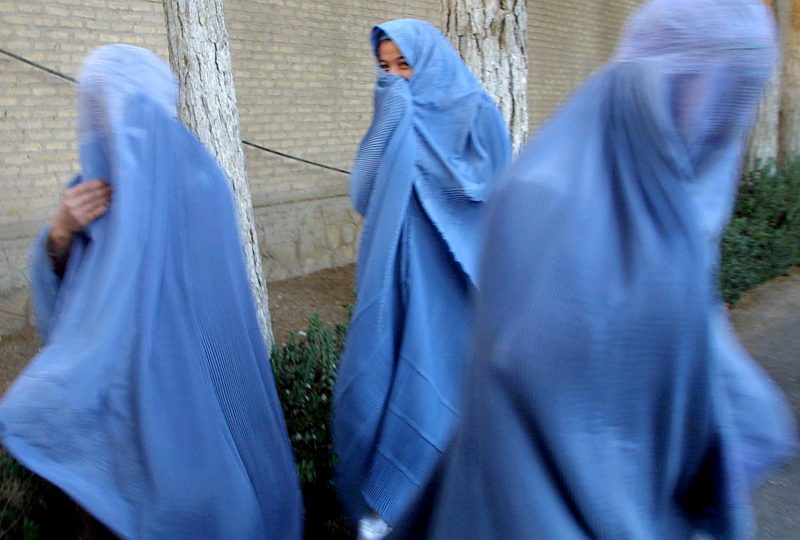Taliban assurance of ‘women’s rights’ has big caveat
Afghan women fear their hard-won rights will be eroded despite Taliban assurances (BEHROUZ MEHRI)
Kabul (AFP) – An agreement by the Taliban to respect women’s rights may seem like a breakthrough, but activists have questioned how the hardline Islamists — notorious for stomping on freedoms — will interpret the careful wording.
A historic meeting between Afghan representatives and the Taliban concluded late Monday with the longtime foes issuing a joint statement, including a reference to women’s rights.
Participants at the Doha summit agreed that “assuring women rights in political, social, economic, educational, cultural affairs as per (and) within the Islamic framework of Islamic values”, is vital for a durable peace.
The wording appears significant, as the Taliban are notorious for their longstanding subjugation of women that has included stonings, honour killings and a ban on education.
Observers have cautioned the pledge is open to broad interpretation, depending on who is defining the values of Islam.
“Our rights were completely respected in ‘frames of Islamic values’ under the (Taliban),” prominent women’s rights activist Wazhma Frogh wrote sarcastically on Twitter.
“What an achievement of the Doha meeting. Going back!”
Manizha Qurban, an Afghan Facebook user, said “a few ignorant people” should not be left to interpret Islamic values.
Otherwise “they will become nightmares, especially for women. We should invite scholars from other Islamic countries to interpret the values for us,” she wrote.
Further fuelling concern and confusion, only the English and Dari versions of the joint resolution include the reference to women’s rights. One version being circulated in Pashto, spoken mainly by the Taliban, did not mention women’s rights.
The joint statement came at the end of two days of talks between Afghan delegates, including a small group of women, and senior Taliban officials who are separately negotiating with the US for a peace deal.
Such a deal would end America’s 18-year involvement in Afghanistan in return for various guarantees, but the US insists the Taliban first hold comprehensive talks with Afghan stakeholders.
– Lip service –
The Taliban have paid increasing lip service to women’s rights, but always include the caveat of defining these through Islam.
For instance, in areas of the country now under the Taliban — the insurgents essentially control or influence about half of Afghanistan — residents report modest changes in the militants’ hardline stance.
In some areas, the Taliban do now allow girls to attend primary school, but they are still segregated by gender and the Taliban control the curriculum.
Nonetheless, reports of floggings and the stoning of women, as well as so-called honour killings — where a girl is accused of bringing a home into disrepute — remain common.
“Please please don’t let the Taliban interpret Islamic principles for women again. Islamic principles for them mean beating and imprisoning women,” Facebook user Samira Samim wrote.
Heather Barr, the acting co-director of the Women’s Rights Division at Human Rights Watch, said it appeared positive that the words “women’s rights” appeared in the statement.
“But this language about women’s rights within the Islamic framework is classic Taliban rhetoric,” she told AFP.
The Taliban “remain fundamentally opposed to gender equality. So the Afghan women at the negotiating table know that they’re in for the fight of their life as they try to preserve the Afghan constitution’s promise of gender equality,” Barr said.
In May, Taliban spokesman Suhail Shaheen said “we do not have any problem with” women’s rights based on Islamic values.
“We have a different culture and different values. Our values, Afghan values, are different from that of Western values,” he told AFP.
The joint statement also included a pledge to decrease violence in some cases and to bring civilian casualties to “zero”.
However, the two-page document made no promise of a ceasefire and Afghanistan’s war rages on.
Disclaimer: Validity of the above story is for 7 Days from original date of publishing. Source: AFP.


